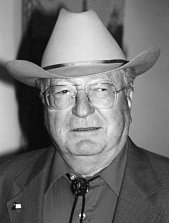

Kelton is no typewriter cowboy rhapsodizing over the purple sage in purple prose he knows whereof he writes. As a kid I loved to sit around and listen to them talk. “Cowboys, especially in the days before television, were pretty good storytellers. Like most writers, young Elmer was a listener, not a talker. (“I’d held a rope but never did use the knife.”) Although Elmer never knew if his father read any of his books, Buck did “help me with details” on matters from windmill-raising to the proper way to castrate a colt. He made his first story sale in 1947 to the pulp magazine Ranch Romances 49 years later, his corpus has grown to 45 novels. Elmer went on to the University of Texas and a career as a journalist and novelist. When Elmer, as a senior in high school, told Buck Kelton that he wanted to write, the old cowboy replied, “That’s the way it is with you kids nowadays–you all want to make a living without having to work for it.”īuck relented. Dad told me pretty early I’d better find some other way to make a living.”īeing a novelist was not exactly what Dad had in mind. We’d go out to gather cattle and if they were 100 yards away I’d miss ’em. I got lost a lot–turns out I was nearsighted. “My three younger brothers were all better cowboys than I was. “Pretty inept,” Kelton says with a smile.

I ask about his youthful cowboying skills. “In an oil-patch town like Crane,” where he attended school, recalls Kelton, “a boy who excelled in English and won spelling bees was automatically suspect.” His father, a ranch foreman named Buck Kelton, came from a line of cowboys his mother, Bea, was a schoolteacher whose male relatives worked as roustabouts in the oil fields. He reels off the original lineup of the “Sons of the Pioneers.” His library overspills with books on Texas, cattle, and the West his musical tastes run to Bob Wills, Roy Acuff, Willie Nelson, and Bill Monroe. His best work, The Time It Never Rained (1973), can be read as character study, regional literature, and philosophical novel: find me a navel-gazing New Yorker writer who has squeezed out a single book as rich, layered, and unsettling.įollowing a lunch of–what else?–thick steaks, I spoke with Elmer Kelton in his study in the home he and his wife built half a century ago in the ranching town of San Angelo, Texas. Elmer Kelton has an utter mastery of his subject a distinctive, even arresting, point of view and a narrative talent honed by writing for the Western pulps. And if the Western is a ghetto, it is a remarkably rich ghetto populated by the likes of Edward Abbey ( The Brave Cowboy), Jack Schaefer ( Shane), Larry McMurtry ( Lonesome Dove), and other novelists whose mortal sin, it seems, is setting their tales in open spaces rather than in the confines of the faculty lounge or city tenement. If you write out of love for your subject matter they’ll dismiss you.”Įlmer Kelton loves his subject matter. Critics don’t read a Western unless the book is contemptuous of its subject matter. Kelton, who turned 80 in April, has his academic champions, but he acknowledges that “the Western field is a literary ghetto. There is, after all, that modifying adjective: Western.

Kelton in his San Angelo home herewith, via the late American Enterprise, the result:Įlmer Kelton was voted “Great Western Writer of All Time” by the Western Writers of America, a daunting title to work under, though he bears it modestly. BURNED–OVER DISTRICT, NY-Elmer Kelton, the superb Texas novelist, died Saturday.


 0 kommentar(er)
0 kommentar(er)
